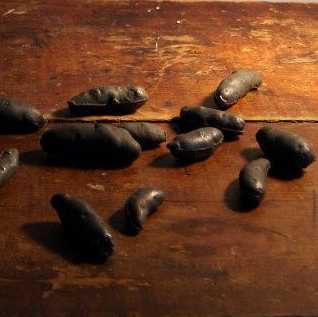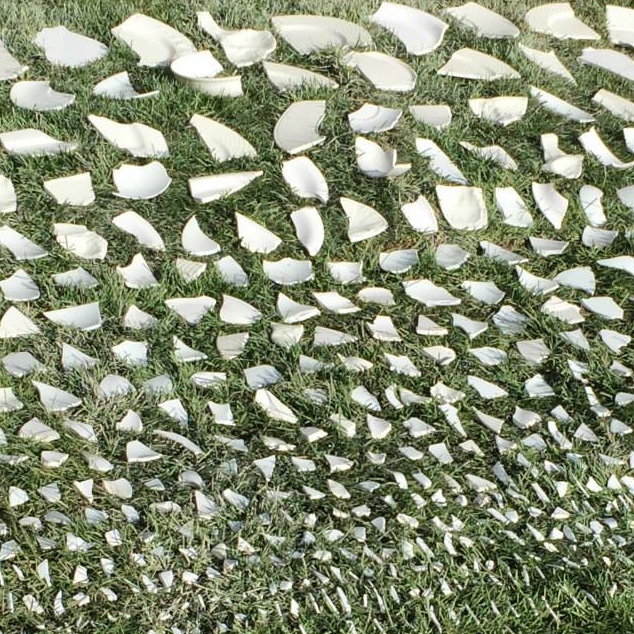Allison Geller is a poet and writer, and the associate editor of A Women's Thing magazine. Her chapbook, Write Home, was published in January 2015 by Finishing Line Press. Geller is also a competitive ballroom dancer.
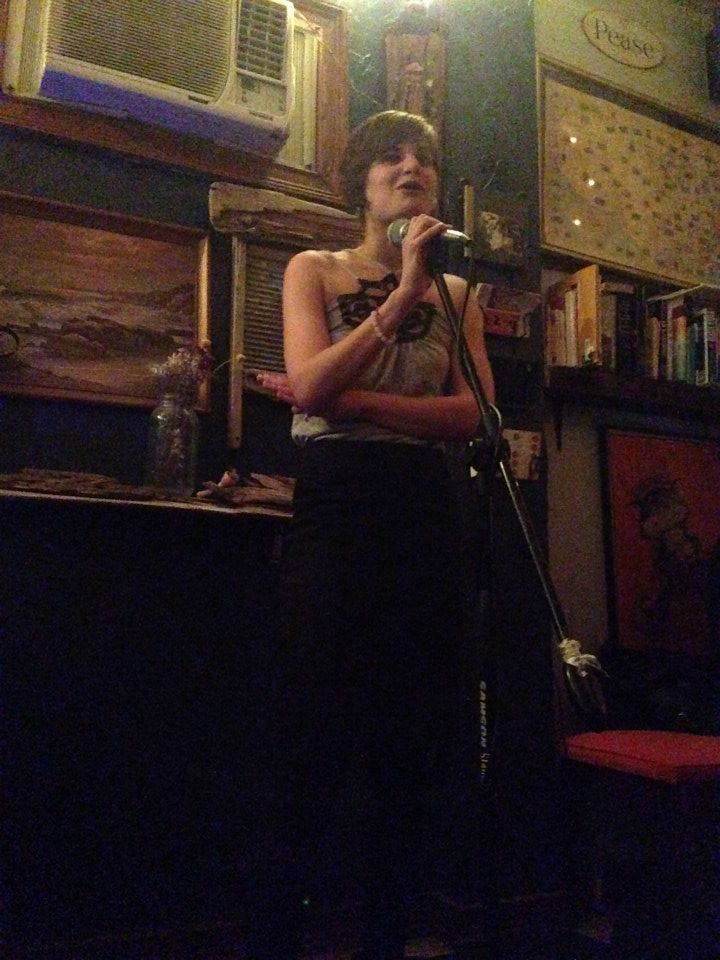 As poets and artists, we have all contributed our time, work, and creative energies for things that we believe in, whether for a nascent (or not-so-nascent) publication, an event, or a cause. But it’s really great to get paid.
As poets and artists, we have all contributed our time, work, and creative energies for things that we believe in, whether for a nascent (or not-so-nascent) publication, an event, or a cause. But it’s really great to get paid.
That’s why my Roots Poetry Series cocurator Melissa Ahart and I are tremendously appreciative of the grant funding that Poets & Writers has given us. It lets us honor our poets’ time and work while allowing us to keep our monthly reading series free to the public. As one our recent readers commented, “Great atmosphere, great crowd, great readers and a check at the end—does it get any better?”
The New York Times called Roots Cafe, a South Slope, Brooklyn neighborhood hub for coffee, community, art, and music, “a cozy living room with a barista.” As of last November, it’s a living room with poetry readings. Melissa and I started the series because Roots, beloved by both of us, seemed like a perfectly convivial place for poets to gather and read for the public. And to our delight, each reading has drawn a crowd of Roots regulars, friends of the poets reading, locals, students, artists, and the odd Australian tourist.
In choosing our lineups, we focus on pairing emerging with established poets to create a diverse roster of readers while giving newer poets a platform. One of the best parts about the readings is the end, when the readers get to meet each other and express admiration and encouragement for each other’s work. Readers have included Bianca Stone, Adam Fitzgerald, Hafizah Geter, Morgan Parker, Danniel Schoonebeek, Emily Skillings, Matthew Rohrer, and many more.
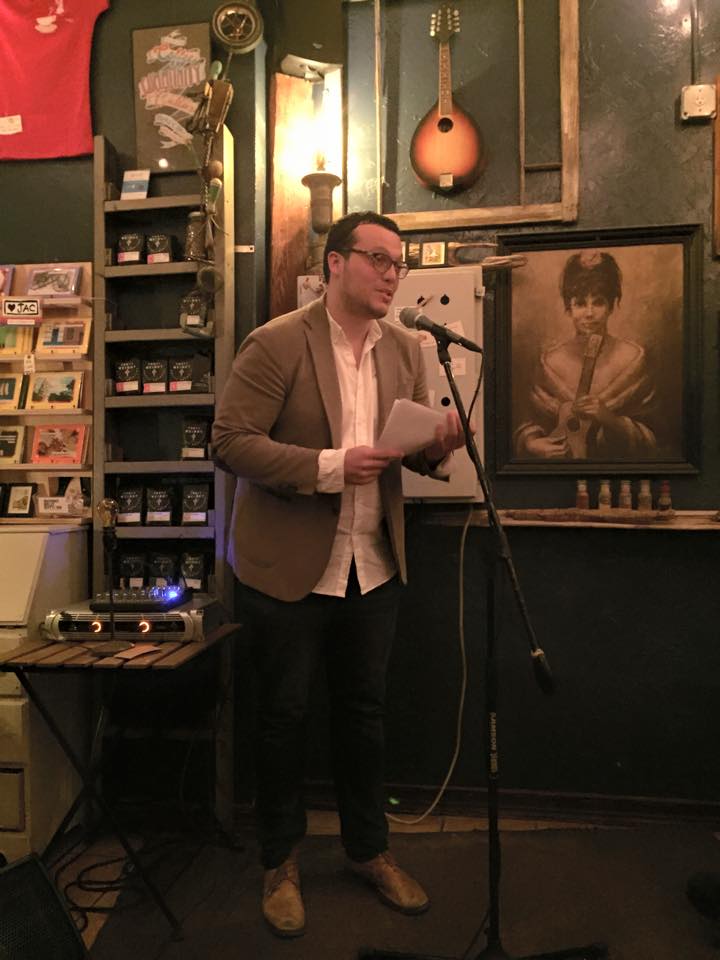 Roots Poetry Series is always free, with beer and wine served in exchange for cash donations. (After all, where there are poets, there has to be wine.) Our next event will take place on Friday, August 18 at 8:00 PM, when we will welcome Kyle Dargan, Sara Jane Stoner, Mary Austin Speaker and Justin Petropoulos. And stay tuned for news about our November one year anniversary reading, for which we’re inviting back all of our Roots Poetry alumni for a roundup reading.
Roots Poetry Series is always free, with beer and wine served in exchange for cash donations. (After all, where there are poets, there has to be wine.) Our next event will take place on Friday, August 18 at 8:00 PM, when we will welcome Kyle Dargan, Sara Jane Stoner, Mary Austin Speaker and Justin Petropoulos. And stay tuned for news about our November one year anniversary reading, for which we’re inviting back all of our Roots Poetry alumni for a roundup reading.
Finally, we are immensely grateful to Amanda and Christian Neill of Roots Cafe for providing a warm, vibrant home for poetry in South Slope, and to Poets & Writers for giving our readers something to put in their pockets on the way out. This is how art can keep getting made.
Read more about Roots and follow us on Facebook to find out about upcoming readings.
Photos: (top) Allison Geller, cocurator of the Roots Poetry Series. (bottom) Charif Shanahan reading his poems. Photo Credit: Mary Catherine Kinniburgh, Allison Geller.
Support for Readings & Workshops in New York City is provided, in part, by public funds from the New York State Council on the Arts, and the New York City Department of Cultural Affairs, with additional support from the Louis & Anne Abrons Foundation, the Axe-Houghton, the A.K. Starr Charitable Trust, and Friends of Poets & Writers.






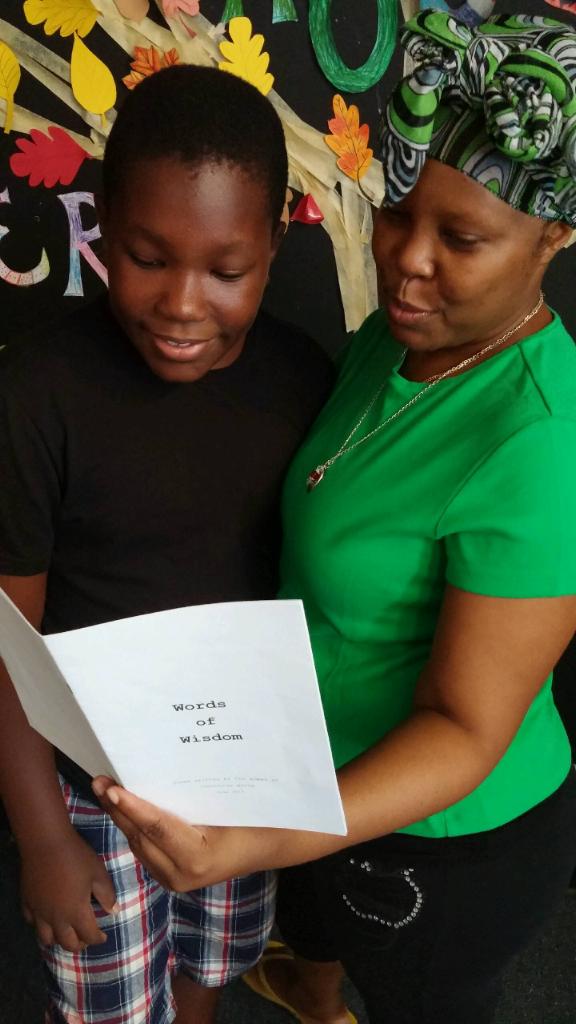
 As poets and artists, we have all contributed our time, work, and creative energies for things that we believe in, whether for a nascent (or not-so-nascent) publication, an event, or a cause. But it’s really great to get paid.
As poets and artists, we have all contributed our time, work, and creative energies for things that we believe in, whether for a nascent (or not-so-nascent) publication, an event, or a cause. But it’s really great to get paid. Roots Poetry Series is always free, with beer and wine served in exchange for cash donations. (After all, where there are poets, there has to be wine.) Our next event will take place on Friday, August 18 at 8:00 PM, when we will welcome Kyle Dargan, Sara Jane Stoner, Mary Austin Speaker and Justin Petropoulos. And stay tuned for news about our November one year anniversary reading, for which we’re inviting back all of our Roots Poetry alumni for a roundup reading.
Roots Poetry Series is always free, with beer and wine served in exchange for cash donations. (After all, where there are poets, there has to be wine.) Our next event will take place on Friday, August 18 at 8:00 PM, when we will welcome Kyle Dargan, Sara Jane Stoner, Mary Austin Speaker and Justin Petropoulos. And stay tuned for news about our November one year anniversary reading, for which we’re inviting back all of our Roots Poetry alumni for a roundup reading.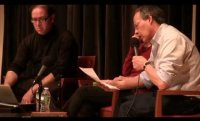
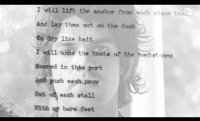
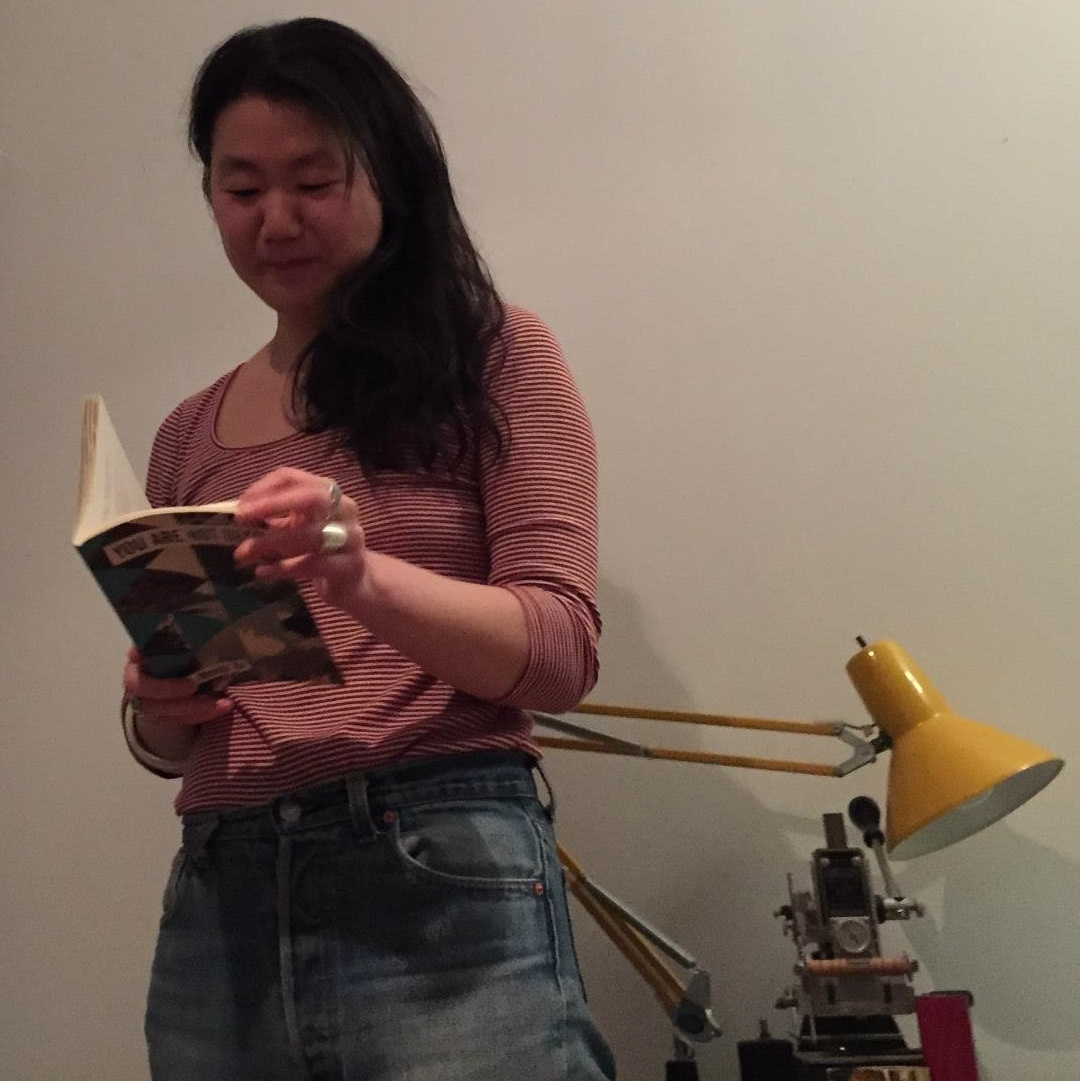 APRIL has built more than one hundred events in four years with the idea that not all readings should consist of an author standing behind a podium. Sometimes you need a gimmick to draw in new audiences.
APRIL has built more than one hundred events in four years with the idea that not all readings should consist of an author standing behind a podium. Sometimes you need a gimmick to draw in new audiences.